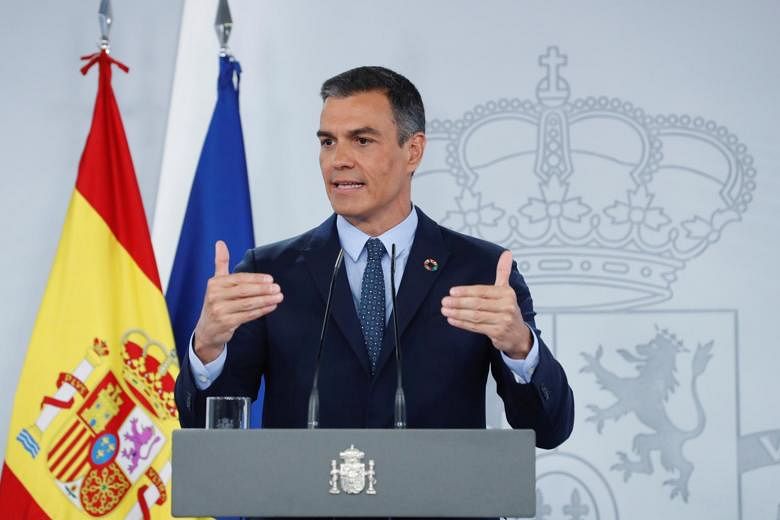MADRID (BLOOMBERG) - Spanish Prime Minister Pedro Sanchez has rejected a new national lockdown, putting pressure instead on regional authorities to come up with a response as the nation re-emerges as the epicentre of the coronavirus pandemic in Europe.
"The evolution is not good, it is worrying especially in some regions and we need to tackle it," Mr Sanchez said on Tuesday (Aug 25) at a news conference after a Cabinet meeting in Madrid.
The central government will provide whatever support the regions need and they will be authorised to declare a local state of emergency if necessary, he said.
"We need to take control, we need to flatten this second curve that is now rising in a threatening way," he added.
The comments were the first the beleaguered Premier has made in public since Aug 4.
His absence fostered the impression that the government was rudderless at a time when coronavirus infection rates were climbing at a faster pace than anywhere else in Europe.
Last week, new cases rose to a four-month high, mirroring a surge across the continent.
A tentative revival of tourism - which accounts for around 12 per cent of the economy - has also faltered as a host of countries including Germany and Britain advised against travelling to Spain.
Spain's fight to contain the resurgent pandemic has been complicated by the practice of delegating authority.
Health policy is typically managed by the 17 regional governments, with the central administration in Madrid limited to a loose coordinating role.
Because Mr Sanchez was unable to stitch together a working consensus at the start of the pandemic, he took control of the health system through special powers granted under a state of emergency.
He then faced repeated demands from regional presidents to hand them back and brought the state of emergency to an end in June.
The decentralised system is also muddling the start of the school term in early September.
Concerns are growing that there aren't clear health guidelines for teachers and students.
Failure to restart classes could deal another major blow to the economy, with hundreds of thousands of working parents potentially left to take care of their children at home.
The tourism sector is crying out for assistance after the worst summer season in living memory.
One demand is that the government extend state support for the labour market, set to expire on Sept 30, though that would add to the strain on already stretched public coffers.











